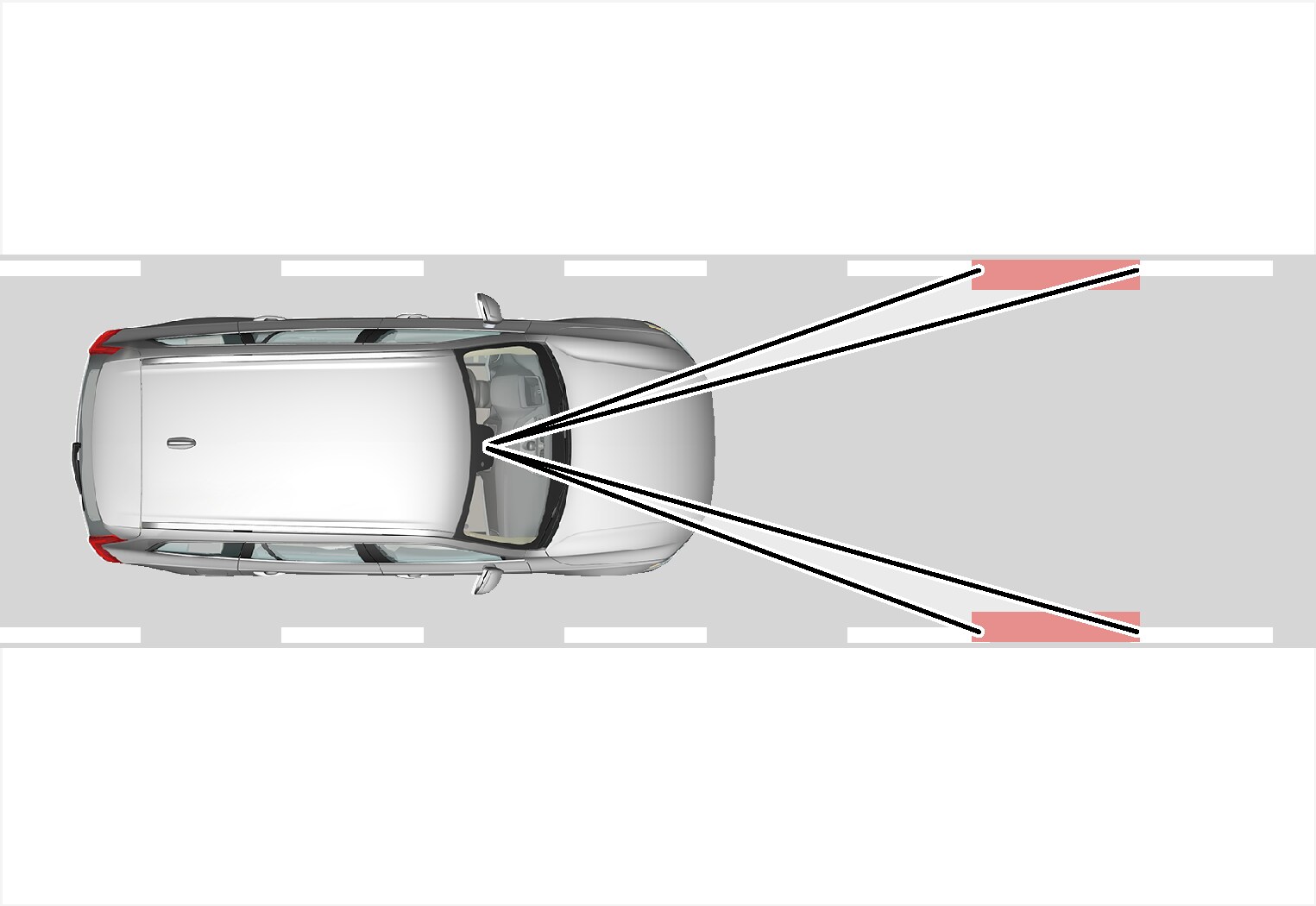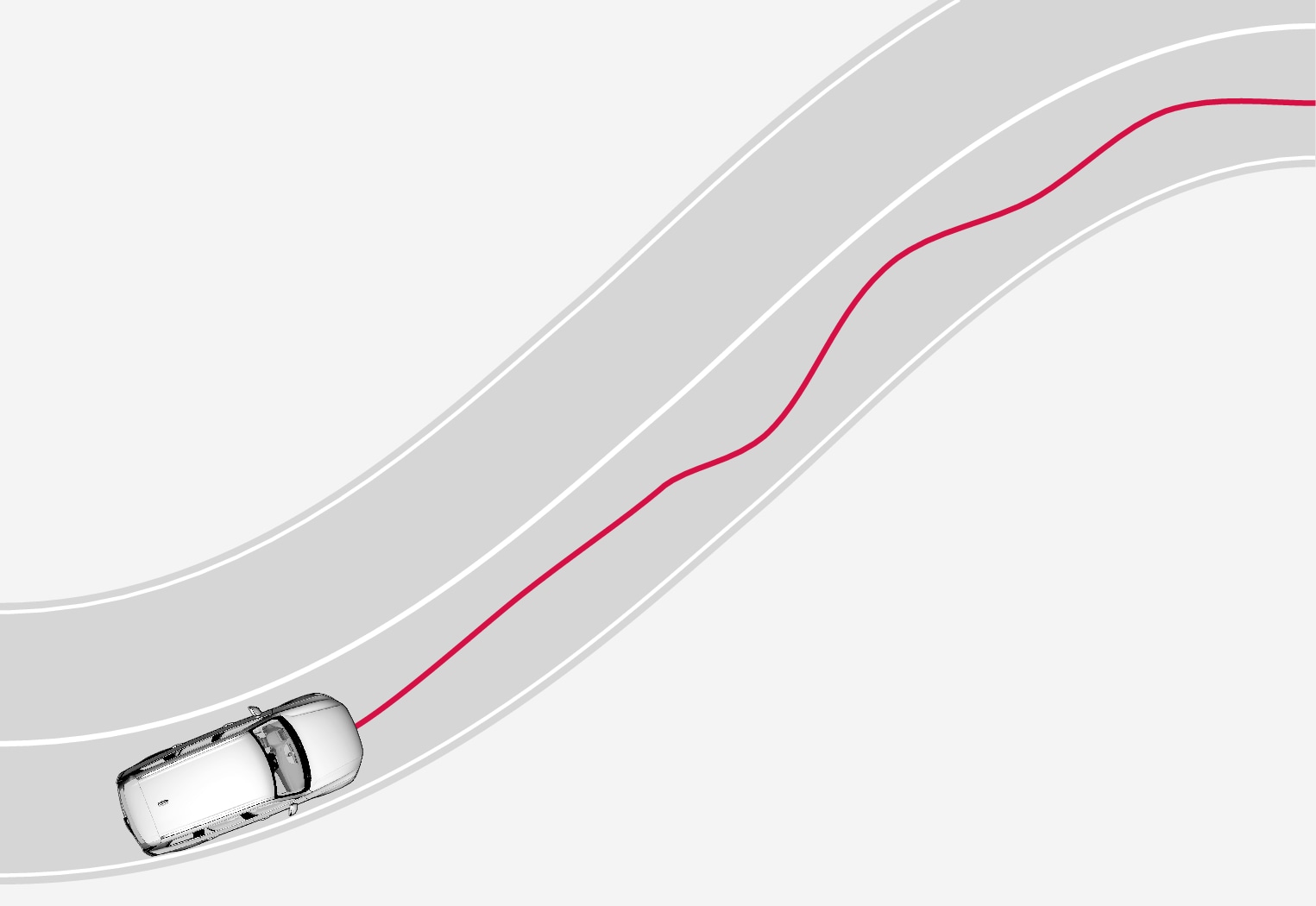Driver Alert Control
The objective of DAC is to detect slowly deteriorating driving behavior and is primarily intended to be used on major roads. The function is not intended for use in city traffic.
DAC is activated when the vehicle's speed exceeds 65 km/h (40 mph) and remains active as long as speeds are above 60 km/h (37 mph).

A camera monitors the traffic lane's marker lines and compares the direction of the road with the driver's movements of the steering wheel.


If driving behavior becomes considerably erratic, the driver will be alerted by this symbol in the instrument panel, an audible signal and the message Time for a break.
If the vehicle is equipped with Sensus Navigation* and the Rest Stop Guidance function is activated, suggestions will also be provided for suitable places to take a break.
The warning will be repeated after a short time if driving behavior does not improve.
Warning
Warning
An alarm from Driver Alert Control should be taken very seriously since a sleepy driver is often not aware of their own condition.
- Stop the vehicle safely as soon as possible and rest.
Studies have shown that it is just as dangerous to drive while tired as it is to drive under the influence of alcohol or other stimulants.
Warning
- The function is supplementary driver support intended to facilitate driving and help make it safer – it cannot handle all situations in all traffic, weather and road conditions.
- The driver is advised to read all sections in the Owner's Manual about this function to learn of its limitations, which the driver must be aware of before using the function.
- Driver support functions are not a substitute for the driver's attention and judgment. The driver is always responsible for ensuring the vehicle is driven in a safe manner, at the appropriate speed, with an appropriate distance to other vehicles, and in accordance with current traffic rules and regulations.